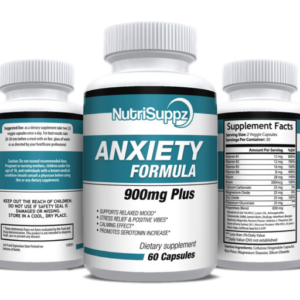11 Sep From Stress to Anxiety: How to Break the Cycle
From Stress to Anxiety: How to Break the Cycle
Stress is a natural response to life’s challenges, but when it becomes chronic, it can lead to more serious mental health issues, such as anxiety. While stress is often situational and temporary, anxiety can persist even after the stressor is gone. Understanding how stress and anxiety are connected is key to managing both effectively and maintaining mental well-being.
What Is Stress?
Stress is the body’s reaction to any demand or threat, whether physical, emotional, or psychological. It activates the “fight or flight” response, causing the release of hormones like cortisol and adrenaline. These hormones increase heart rate, elevate blood pressure, and prepare the body to deal with the challenge at hand.
In small doses, stress can be beneficial, helping you stay focused and alert. However, when stress becomes constant, it takes a toll on the body and mind. Chronic stress can lead to a wide range of health problems, including headaches, fatigue, digestive issues, and weakened immune function.
How Stress Leads to Anxiety
Stress and anxiety are closely linked, but they are not the same. Stress is typically caused by external factors like work pressures, financial concerns, or relationship problems. Anxiety, on the other hand, is a more persistent feeling of worry or fear that can arise even without a clear cause.
When stress is prolonged, it can overwhelm the body’s ability to cope, leading to anxiety. The brain becomes hyper-vigilant, constantly searching for potential threats, even when none exist. Over time, this state of heightened alertness can make it difficult to relax, leading to the development of anxiety disorders.
Chronic stress can also cause physical symptoms like muscle tension, increased heart rate, and difficulty sleeping, which further fuel feelings of anxiety.
Breaking the Cycle of Stress and Anxiety
Managing stress is essential to prevent it from turning into chronic anxiety. Relaxation techniques such as deep breathing, mindfulness, and meditation can help calm the mind and reduce the physical symptoms of stress.
Exercise is another effective way to combat stress and anxiety. Physical activity releases endorphins, the body’s natural mood elevators, and helps regulate the stress hormones that contribute to anxiety.
At Nutrisuppz, we offer natural solutions to help you manage both stress and anxiety. Our supplements are designed to support your body’s ability to handle stress and promote relaxation. Ingredients like adaptogens, magnesium, and B-vitamins help balance stress hormones and improve mental clarity, making it easier to manage anxious thoughts.
Long-Term Strategies for Stress and Anxiety Management
In addition to daily relaxation practices, long-term lifestyle changes can greatly reduce both stress and anxiety. Creating a healthy work-life balance, prioritizing self-care, and staying connected with loved ones are all important for maintaining mental health.
Nutrisuppz supplements can be a valuable part of your long-term wellness routine. By providing your body with essential nutrients that support stress reduction, you can build resilience against both stress and anxiety over time.
When to Seek Professional Help
If you find that stress and anxiety are interfering with your daily life, it may be time to seek professional help. Therapy, such as Cognitive Behavioral Therapy (CBT), can help you identify the sources of stress and anxiety and develop coping strategies. In some cases, medication may also be recommended.
Stress is a part of life, but it doesn’t have to lead to anxiety. By understanding the connection between stress and anxiety and taking steps to manage both, you can protect your mental health and live a more peaceful life. Nutrisuppz is here to support you with supplements that promote relaxation, reduce stress, and improve overall well-being.




No Comments